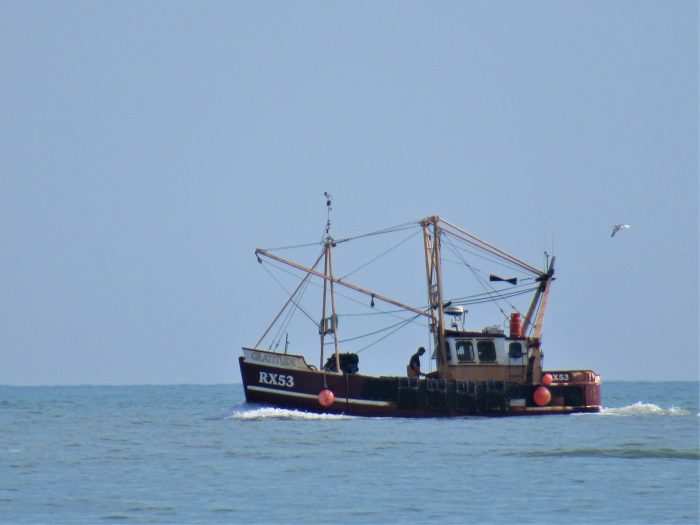Long Island fishermen avert weather catastrophes, for now
Long Island’s fishing industry may have dodged a bullet this hurricane season, although the official season for the Atlantic Basin does not end until Nov. 30. Yet stormier seas may be brewing for the years ahead.
Local fishermen sounded an upbeat tune after a sequence of intense tropical cyclones did not make landfall. While precipitation disrupted some local events in recent weeks, fishing operations have gone along without interruption.
Eric Huner owns and operates Captain Fish Port Jefferson, a fishing charter boat based in Port Jefferson that transports tourists and locals for fishing charters.
“For me personally, it didn’t affect me at all,” he told TBR News Media. “I can’t say there’s any real loss, probably for any private fishing boat like myself.”
On the commercial fishing side, the experience was relatively similar, according to Bonnie Brady, executive director of the Long Island Commercial Fishing Association.
“As far as those guys that were fishing, most guys were out fishing the next day” after Hurricane Lee brushed past the Northeast, she said. “There wasn’t really much of an impact, thank goodness.”
Difficult past, uncertain future
Those interviewed suggested the Long Island fishing industry had averted a major threat with these storms avoiding landfall.
Reflecting upon the commercial impacts of Hurricane Sandy in 2012, Brady remembered it as “particularly vicious” for the shoreline, with consequences for the fishing industry as well.
However, Huner said that irregular winds and tidal patterns are increasingly commonplace, complicating matters for his business. With projections for more frequent and intense storms, Huner said his line of work is becoming less predictable, noting the increasing difficulties in deciding which days to fish and selecting departure times.
“This year was the first time I took notice of the weather patterns being very difficult to predict,” he said. There was “a lot of volatility in the wind patterns, difficult to find windows of opportunity to go out,” adding, “It was not a normal, stable summer.”
More broadly, Brady expressed reservations about the regional trend toward offshore wind, saying this infrastructure could disrupt the local fishing industry.
“Offshore wind is going to, from our perspective, industrialize the ocean beyond any kind of repair,” she said. “It’s a very frightening time for our ocean, and that’s why we’re fighting so hard against it.”
Optimistic outlook
Huner said that the fisheries remain well populated despite the climactic challenges, a positive indicator that conservation efforts are working.
He also stated that the nature of the trade requires frequent adaptation to changing conditions. “The local fisherman is a pretty experienced person on the water,” he said. “I’m constantly reviewing what the weather forecasts are, what the wind forecasts are — and that’s a big part of my job.”
He added, “It takes a little more work, and if this is going to be what we call our ‘new normal,’ then we’re just going to have to be really on top of it.”
Adding to these sentiments, Brady said local fishermen are used to adapting “to changes in the water every day.”
“Those who are good at this trade tend to be experiential learners,” she said. “Every day, the ocean can change. The tides change. The moon changes. So they learn to adapt based on living it.”







